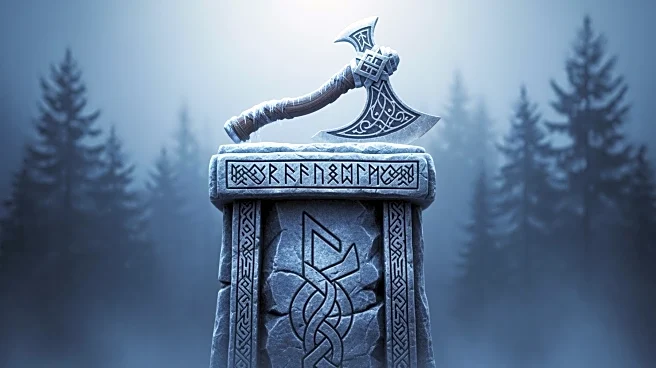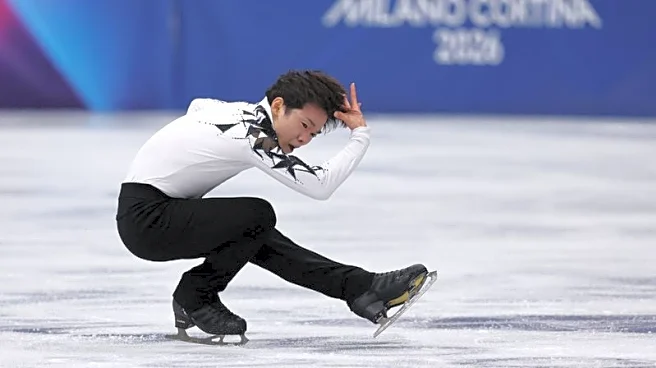What's Happening?
President Donald Trump has indicated that he is not ruling out the possibility of running for a third presidential term. During a conversation with reporters aboard Air Force One, Trump highlighted his
strong poll numbers as a factor in his decision-making process. This statement comes amidst ongoing discussions about the potential for Trump to seek another term, despite the traditional two-term limit for U.S. presidents. Trump has previously mentioned methods by which he could serve another term, including the possibility of another candidate running and then passing the baton back to him.
Why It's Important?
The prospect of President Trump running for a third term could have significant implications for U.S. politics. It challenges the established norm of a two-term presidency, which has been in place since the ratification of the 22nd Amendment in 1951. If Trump were to pursue this path, it could lead to legal and constitutional debates regarding presidential term limits. Additionally, Trump's strong poll numbers suggest he maintains substantial support among his base, which could influence the Republican Party's strategies and candidate selections in future elections.
What's Next?
If President Trump decides to pursue a third term, it could prompt a series of legal challenges and political maneuvers. Key stakeholders, including political leaders and legal experts, may weigh in on the constitutional implications of such a move. The Republican Party may also face internal discussions about supporting Trump's potential candidacy or exploring alternative candidates. The situation could lead to increased political polarization and debates about the future of presidential term limits in the United States.
Beyond the Headlines
The discussion around President Trump's potential third term raises broader questions about the balance of power and the role of constitutional amendments in shaping U.S. governance. It may also spark conversations about the influence of public opinion and polling data on political decision-making. The situation could lead to a reevaluation of the mechanisms that ensure democratic transitions of power and the safeguards against extended leadership tenures.










